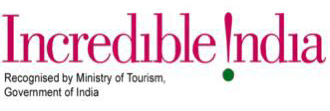
Guided Tea Tour with Mountain Bike Trip
Destination
Darjeeling
Trip Type
Adventure
Duration (in Days)
2
Altitude
2,542 m
Difficulty
Moderate
Accommodation
Hotels
Details
Our Guided Tea Tour with Mountain Bike Trip starts from our office will take you to the pioneering micro tea processing unit of Organic Darjeeling tea initiated to deliver quality and healthy orthodox tea to tea lovers.
Darjeeling tea is a tea grown in the Darjeeling district in West Bengal, India, and widely exported and known. It is processed as black, green, white and oolong tea. When properly brewed, it yields a thin-bodied, light-coloured infusion with a floral aroma. The flavour can include a tinge of astringent tannic characteristics and a musky spiciness sometimes described as “muscatel”
Unlike most Indian teas, Darjeeling tea is normally made from the small-leaved Chinese variety of Camellia sinensis var. sinensis, rather than the large-leaved Assam plant (C. sinensis var. assamica). Traditionally, Darjeeling tea is made as black tea; however, Darjeeling oolong and green teas are becoming more commonly produced and easier to find, and a growing number of estates are also producing white teas. After the enactment of Geographical Indications of Goods (Registration & Protection Act, 1999) in 2003, Darjeeling tea became the first Indian product to receive a GI tag, in 2004–05 through the Indian Patent Office.
Production has long been affected by disagreements between management and labour. Tea planting in the Indian district of Darjeeling began in 1841 by Archibald Campbell, a civil surgeon of the Indian Medical Service. Campbell was transferred as superintendent of Darjeeling in 1839 from Kathmandu, Nepal. In 1841, he brought seeds of the Chinese tea plant (Camellia sinensis) from Kumaun and began to experiment with tea planting in Darjeeling.[3] The British government also established tea nurseries during that period (1847). Commercial development began during the 1850s.[4] In 1856, the Alubari tea garden was opened by the Kurseong and Darjeeling Tea company, followed by others.
Traditionally, Darjeeling teas are classified as a type of black tea. However, the modern Darjeeling style employs a hard wither (35–40% remaining leaf weight after withering), which in turn causes an incomplete oxidation for many of the best teas of this designation, which technically makes them a form of oolong. Many Darjeeling teas also appear to be a blend of teas oxidized to levels of green, oolong, and black.
The first flush is harvested in mid-March following spring rains and has a gentle, very light colour, aroma, and mild astringency.
In between is harvested between the two “flush” periods.
The second flush is harvested in June and produces an amber, full-bodied, muscatel-flavoured cup.
Monsoon or rains tea is harvested in the monsoon (or rainy season) between the second flush and autumnal, is less withered, consequently more oxidized, and usually sold at lower prices. It is rarely exported, and often used in masala chai.
Autumnal flush is harvested in the autumn after the rainy season and has a somewhat less delicate flavour and less spicy tones, but a fuller body and darker colour.
Since most of the raw tea leaves are bought directly from more than 50 plus indigenous and hardworking farmers in Darjeeling. Directly a part of the revenue earned by the company goes to patronizing small farmers who cultivate tea organically which is dying in these times hence we strive to revive, support and uplift their economic condition. By patronizing growing tea by small farmers as an alternative cash crop better for farmers, the company will be promoting its product with a little sense of charity in the global market.
On this tea tour, we will take you to the pioneering micro tea processing unit of Organic Darjeeling tea initiated to deliver quality and healthy orthodox tea to tea lovers.
Winner of Gold Award at the World Tea Appraisal held in China 2016
TRIP HIGHLIGHT
- Guided tea factory tour with the professional guide and factory owner
- Ride through the tea garden
- Tea tasting
- Tea processing
For the full trip, details and price please kindly email us and we will get right back to you.
- Experienced Mountain Biking & English speaking guide.
- Hydraulic Mountain Bike
- Helmets
- Repair Kit
- Lunch
- First Aid Kit
- Flights
- Medical examination (if required) and vaccination costs
- Visa costs
- Personal expenditure i.e. soft drinks/beer on the trek, extra snacks for the trek.
- Meals in Darjeeling before or after the trek Travel insurance










